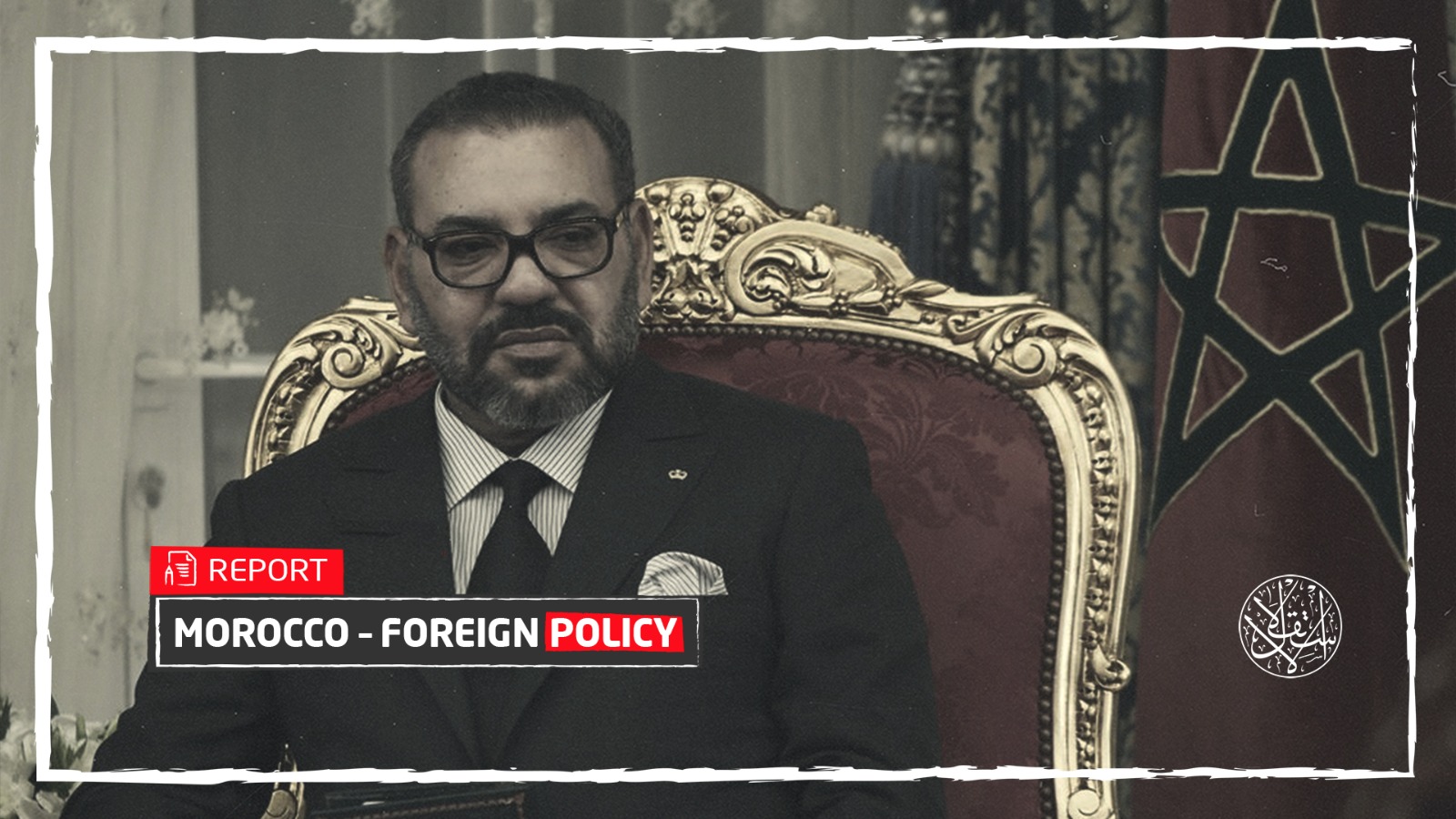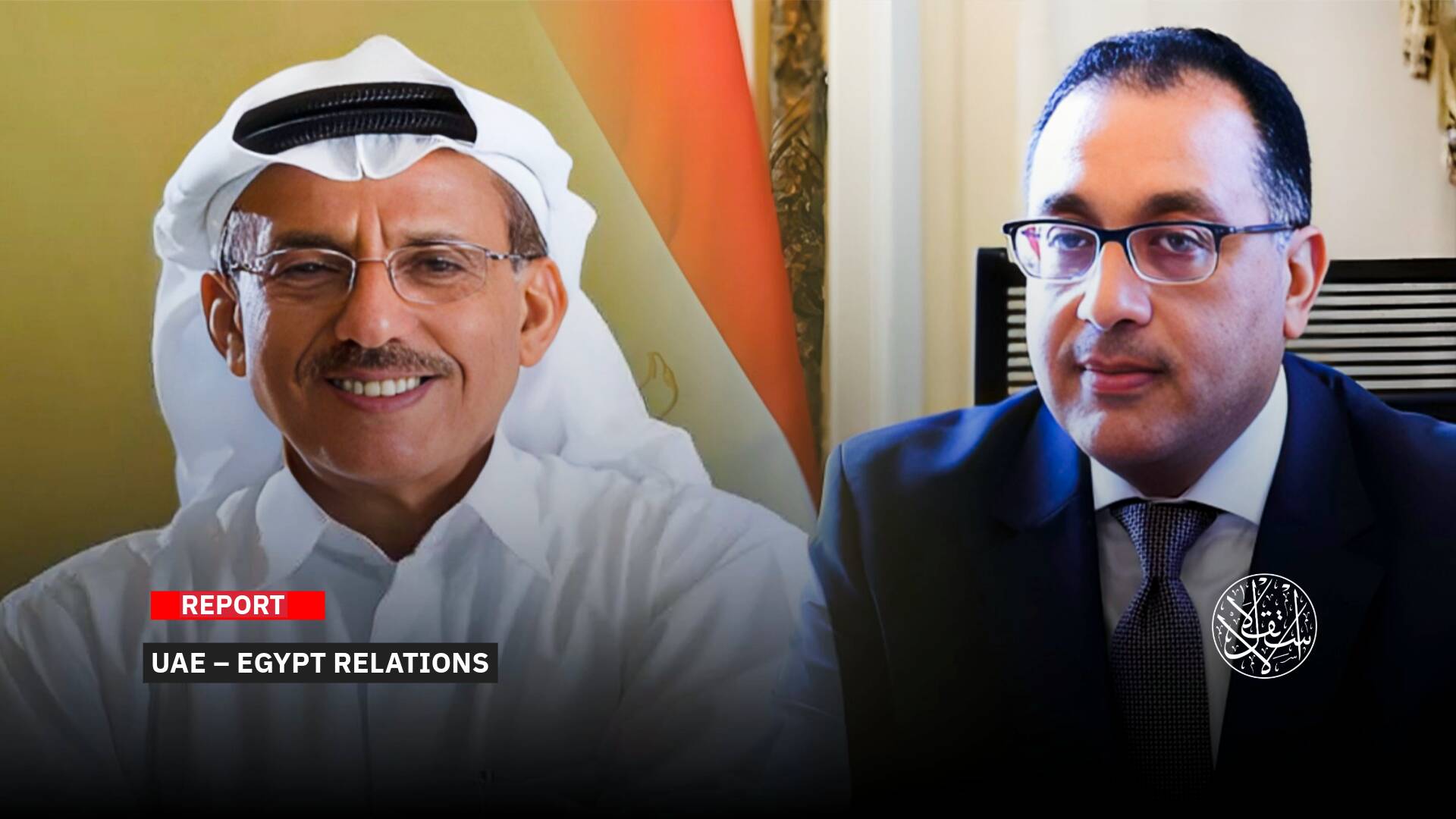Does the Crisis With Spain Push Morocco to Deepen Relations With the Netherlands and Italy?

Morocco turned the page on the dispute with the Netherlands by concluding a new agreement in the field of security cooperation. It also agreed to strengthen cooperation with Italy.
This rapprochement with the two countries came in light of the diplomatic crisis with Spain, which made a number of analyzes suggest that Morocco is looking for an alternative partner to Madrid.
Moroccan Interior Minister Abdelouafi Laftit held, in Rabat, a working session with his Italian counterpart, Luciana Lamorgese, on July 16, 2021.
Security cooperation, especially the fight against terrorism and organized crime, topped the agenda of the meeting. The Minister of Interior noted the fruitful cooperation in the security interests between the two countries, which is characterized by "regular coordination and continuous exchange of information."
After her meeting with Laftit, Luciana Lamorgese met Minister of Foreign Affairs and African Cooperation, Nasser Bourita.
Italy is not alone. On July 8, 2021, a bilateral agreement between Morocco and the Netherlands was signed, to ensure “transparency of bilateral funding” and “facilitate the orderly exchange of information” regarding NGO funding.
After the Crisis
The action plan between Morocco and the Netherlands aims, according to the Moroccan Foreign Ministry’s statement, to “consecrate the two countries’ commitment to strengthening their bilateral relations, affirming respect for each other’s sovereignty and institutions, and consolidating the rules of partnership on the basis of respecting the common interests of the two countries.”
In this regard, the two parties decided to ensure transparency of bilateral funding and agreed to conduct a permanent dialogue to facilitate regular exchange of information prior to funding NGOs, while respecting the legal frameworks of both countries.
In February 2020, signs of a crisis emerged between Rabat and Amsterdam over the file of "Rif detainees" in Morocco, and the government of Saad Eddine El Othmani announced that it "strongly rejects foreign interference in the country's internal affairs."

The government's position came in response to a report prepared by a delegation from the Dutch Parliament.
A report on the events of the city of Al Hoceima, submitted by the Dutch Foreign Minister to the country's parliament in 2018, sparked a diplomatic crisis between Morocco and the Netherlands.
Morocco summoned the Dutch ambassador in Rabat to the headquarters of the Ministry of Foreign Affairs to inform her of Morocco’s official protest against the positions issued by Dutch Foreign Minister Stef Blok.
The Dutch parliament delegation discussed with the country's foreign minister, intervention, and pressure on Morocco to release these detainees, as the delegation's visit to the Rif region will further deepen the diplomatic crisis.
The crisis worsened, a few days before the outbreak of the Corona pandemic, when Dutch parliamentarians arrived in the city of Al Hoceima, and issued a report that made a bleak picture of the conditions of the families of the Rif movement detainees, demanding the release of all detainees, which Morocco did not like, and considered it an interference in its affairs.
The crisis between Morocco and the Netherlands continued until 2021, before the crisis with Spain and Germany sparked as well, which reinforced the hypothesis that Rabat is looking for new strategic partners as soon as a new agreement is concluded with Italy.
New Agreement
The Italian Minister of the Interior's visit to Morocco, according to the local newspaper, which coincided with the ongoing diplomatic crisis between Rabat on the one hand and Germany and Spain on the other, confirmed the Kingdom's continuation of close relations at the intelligence level with a group of European countries.
The announcement that security coordination was one of the issues of common interest with Rome was preceded by the security operation that received international media attention. When information provided by Moroccan intelligence to its Italian counterpart helped arrest the leader of the Islamic State nicknamed "Abu Al-Bara".
Italy is not the only European country with which Morocco has been working recently to build strong intelligence relations.
The move comes at a time when Rabat is severing diplomatic ties with Germany.

Among the causes of the crisis, the Berlin authorities revealed "sensitive information" that the Moroccan security services provided to their German counterparts, in addition to the German position, which Rabat describes as "hostile from the Moroccan Sahara."
The continuation of the diplomatic estrangement with Madrid after the entry of "Polisario" leader Ibrahim Ghali to Spain pushed Morocco to stop its security cooperation with these two European countries.
The Spanish opposition warned the government of Pedro Sanchez of that.
In addition to its coordination with Italy and the Netherlands, Morocco still maintains strong security coordination with other countries, led by France and Belgium, which makes its diplomatic dispute with Madrid and Berlin a bilateral issue that links it to each country separately. It will not be in the interest of other countries to turn it into a Moroccan-European dispute.
Long-Lasting Crisis
The crisis between Rabat and Madrid has gone through ups and downs at the political level, but it did not stop there, as it affected the economic and security aspects as well.
According to information published by the Russian "Sputnik" network, earlier, unannounced talks took place between Madrid and Rabat to discuss points of contention, in which Morocco stuck to its position rejecting Spain's position on the Sahara issue, while Madrid rejected some Moroccan insinuations also related to the same issue.
On July 10, 2021, Spanish Prime Minister Pedro Sanchez announced amendments to his government through which he ousted Foreign Minister Arancha Gonzalez Laya, who was widely criticized for a crisis with Morocco.
Media outlets linked the government reshuffle and the overthrow of the Minister of Foreign Affairs with her mismanagement of the crisis with Morocco.
With regard to the relationship between the step to overthrow the minister and the crisis with Morocco, the former Moroccan government spokesman, Hassan Abyaba, said: "Changing the minister is a matter that concerns Spain internally only, especially since it did not succeed in many files, including the file of relations with Rabat."
In his speech to "Sputnik", he added that what matters to Morocco is not changing people, but attitudes, especially since the current Spanish government has multiple internal problems, including the economic and social crisis at all levels.

No alternative
Professor of political science, Mohamed Choucair, said: Cooperation with various European partners is always present in Morocco's relationship with European countries.
But what is different is that in recent times there have been a set of tensions, whether with the Netherlands, Germany, or Spain, and also with France.
Choucair explained to "Al-Estiklal", that this tension pushes Morocco to send a message to the European partners, that it no longer accepts the previous method of dealing, but rather adopts a new ground based mainly on transparency and the exchange of interests and away from the spirit of guardianship.
He believes that the new agreements with the Netherlands and Italy were built on this basis, "and I do not think that they are directed at Spain, because each partner has relations with its own peculiarities, and Morocco is now laying a new ground for cooperation with partners based on a kind of equality."
After the American recognition of the Moroccan Sahara (which was not recognized by Europe and the rest of the world), Morocco has a margin of maneuver that defines the ground for cooperation, according to the spokesman.
Choucair considered that, we could not talk about an alternative in international security relations, as they are of a comprehensive nature, especially with regard to terrorism, which Morocco enters with several international partners in partnerships to besiege it.
He considered the existence of tension between Morocco and some of these partners does not mean that it would prefer one country over another or look for an alternative to it, as they all belong to the European Union and have the same problems with regard to the security file.
He concluded by saying: In its current foreign policy, Morocco is defining a new ground for dealing with other countries. Thus, it is natural for cooperation and understanding to occur with countries accepting it.
Sources
- المغرب وإسبانيا...هل فرضت الرباط واقعا جديدا في الأزمة مع مدريد؟
- المغرب يطوي سنوات من الخلاف مع هولندا.. اتفاق لتبادل المعلومات قبل تمويل الجمعيات
- لفتيت يعقد جلسة عمل بالرباط مع نظيرته الإيطالية
- المغرب يفتح باب التنسيق الأمني مع إيطاليا وهولندا.. المخابرات تحصل على شركاء جدد في عز الأزمة مع إسبانيا وألمانيا












